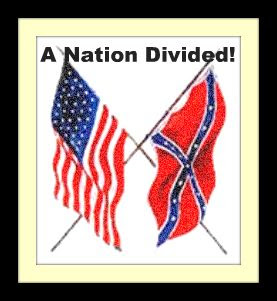Grant was very interested in horses and preferred to ride instead of study. Despite his poor grades and lack of attention to school he got into West Point at the age of 17. He graduated 21st in his class and was brevet second lieutenant. He sent to the infantry, and was posted at St. Louis, Missouri. He later saw action in the Mexican War as had most great generals and married his wife. After the Mexican War, Grant spent many years all over the place and eventually resigned after being yelled for drinking heavily. Grant, then moved back to his home in St. Louis hoping to get another career off the ground but none of these other careers panned out for him. Finally, his two brothers hired him as a clerk until the start of the war. He was signed up to be in the union army but no one would give him command over a army. He was assigned to the Illinois Volunteers as regiment colonel. He was later promoted to brigadier general. Grant first saw action at a confederate camp in Kentucky. His men broke rank to ransack the camp but Grant was able to
Grant was then promoted by the President to a Major General and his first campaign was Shiloh . Grant was heavily criticized for this campaign. He had outnumber the confederates by a big margin but still took heavy causalities. Next Grant took on Vicksburg on the Mississippi. This was a key battle for the Union since it would split the confederacy. He won many battles after then in Tennessee and Mississippi. After being so successful, Grant was promoted twice, then given a gold medal for his success. He was finally promoted to general in chief. Once he was charge, he took charge and made a plan to attack the confederates on three fronts. If you remember the Union wanted a quick victory and Lincoln could not stand McClellan's lallygagging and hesitation. Vicksburg could very well be the turning point in Grants life.
Grant's plan was to use his 3 main generals to attack at different spots. Meade, Sherman, Butler and Grant himself. This plan worked even though the union took heavy causalities. Probably the most of the generals was Sherman who manage to cut supply lines and create havoc in the south. His famous march the "Sherman's march to the sea" was key in Grant's success and more importantly a Union victory. Finally the war end at the Appomattox's Court house on April 9th, 1865.
After the war, Grant was a instant President. He was so popular but this Presidency proved to be full of scandals and among other things. The main reason for these scandals was because Grant hired all of his friends and this made a corrupted government. Grant died poor, he wrote his autobiography and personal memoirs to make money and sold his war mementos. Grant died in 1885 on July 23rd. Grant was great military man but not so great at anything else. If you want more information on Ulysses S Grant just type in on Google or look it up in a encyclopedia. Grant is also on the 50 dollar bill as is Lincoln, Washington are on the 5 and 1 dollar bill respectively.
Next:William Tecumseh Sherman


No comments:
Post a Comment